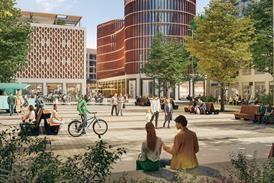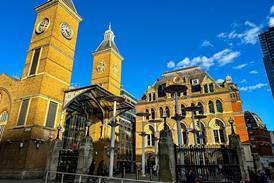- Home
 Niall McLaughlin team wins Jordan baptism museum contest
Niall McLaughlin team wins Jordan baptism museum contest Howells’ plans for Solihull revamp get green light
Howells’ plans for Solihull revamp get green light McAslan says Network Rail’s Liverpool Street station plan will leave future generations asking ‘how in the name of God did this get built?’
McAslan says Network Rail’s Liverpool Street station plan will leave future generations asking ‘how in the name of God did this get built?’ Record response to Acme’s Liverpool Street overhaul as number of people opposing or supporting plan nears 5,000
Record response to Acme’s Liverpool Street overhaul as number of people opposing or supporting plan nears 5,000
- Intelligence for Architects
- Subscribe
- Jobs
- Events

Events calendar Explore now 
Keep up to date
Find out more
- Programmes
- CPD
- More from navigation items
RIBA names winner of 2018 Foster Travelling scholarship

University of Greenwich student Steven Hutt set for north-east Asia megacity odyssey
This content is available to registered users | Already registered?Login here
You are not currently logged in.
To continue reading this story, sign up for free guest access
Existing Subscriber? LOGIN
REGISTER for free access on selected stories and sign up for email alerts. You get:
- Up to the minute architecture news from around the UK
- Breaking, daily and weekly e-newsletters
Subscribe to Building Design and you will benefit from:

- Unlimited news
- Reviews of the latest buildings from all corners of the world
- Technical studies
- Full access to all our online archives
- PLUS you will receive a digital copy of WA100 worth over £45
Subscribe now for unlimited access.


